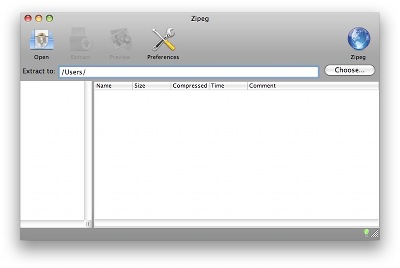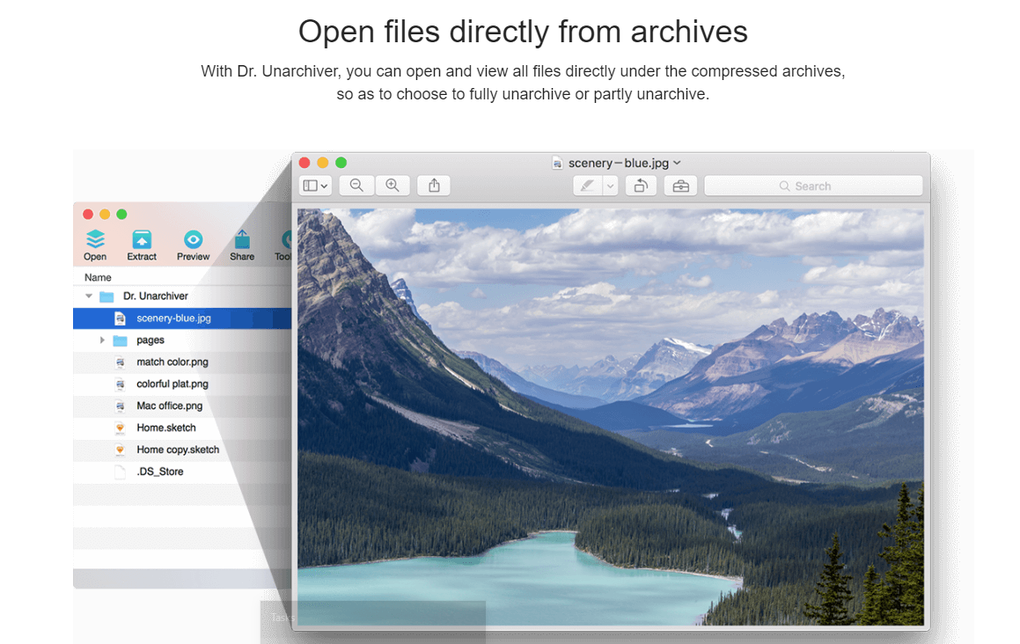Should unArchive any Mac OS 10.x installation. Requires another Macintosh computer running Mac OS 10.2 - 10.3 (as tested), or hard drive with Mac OS X system software (other than the drive that is. The Unarchiver is a free program for Mac to archive files to extract. The program supports more compression formats than the default tool in Mac OS. In addition, The Unarchiver is a nice design, and supports foreign characters (such as those from the Japanese language).
Is there some command line tool which allows extracting files from most known archive types? Something like StuffIt Expander, but without gui.
Arjan5 Answers
The Unarchiver has two command line utilities since version 2.5 according to the website:
Supported file formats include Zip, Tar-GZip, Tar-BZip2, RAR, 7-zip, LhA, StuffIt and many other more and less obscure formats. [..] If you have a compressed file that The Unarchiver does not open, please post a bug on the bug tracker, and include the file in question, and I will look into whether it is possible to add support for it!
[..]
There are now two command-line utilities available, unar and lsar, which can be used to unpack and list archives, respectively. They are still in development and not really feature-complete, but they should work. These are available as precompiled binaries for both OS X and Windows on the download page, and can also be built on Linux.
To download the command line tools (not included in the regular The Unarchiver download!), go to the project's google code downloads page and select unar0.2.zip (works as of September 20, 2010).

Try 7-Zip. In addition to its own native format (.7z) it can handle the following extensions: ZIP, gzip, bzip2, tar and, in betas for version 9, xz. It can also decompress (only) in the following formats: ARJ, CAB, CHM, cpio, DEB, DMG, HFS, ISO, LZH, LZMA, MSI, NSIS, RAR, RPM, UDF, WIM, XAR and Z.
A Windows command line version 7za.exe is included. For other platforms, a POSIX version named p7zip is available from the P7ZIP SourceForge project, and some of those ports are also linked from 7-Zip's download page. Unfortunately, the Mac link seems broken, so for OS X, either build it yourself or use MacPorts.
EDIT: For non-Windows versions go to the Downloads page. There you can find the source as well as pre-compiled binaries.
Joe CasadonteJoe CasadonteIf you happen to use Homebrew, you can install atool and extract many archive types like so:
Assuming the corresponding external programs are available on your system, it can handle:
.tar.gz, .tgz, .tar.bz, .tbz, .tar.bz2, .tbz2, .tar.Z, .tZ, .tar.lzo, .tzo, .tar.lz, .tlz, .tar.xz, .txz, .tar.7z, .t7z, .tar, .zip, .jar, .war, .rar, .lha, .lzh, .7z, .alz, .ace, .a, .arj, .arc, .rpm, .deb, .cab, .gz, .bz, .bz2, .gz, .bz, .bz2, .Z, .lzma, .lzo, .lz, .xz, .rz, .lrz, .7z, .cpio
atool is a script for managing file archives of various types (tar, tar+gzip, zip etc).
The main command is aunpack which extracts files from an archive. Did you ever extract files from an archive, not checking whether the files were located in a subdirectory or in the top directory of the archive, resulting in files scattered all over the place? aunpack overcomes this problem by first extracting to a new directory. If there was only a single file in the archive, that file is moved to the original directory. aunpack also prevents local files from being overwritten by mistake.
The other commands provided are apack (to create archives), als (to list files in archives), and acat (to extract files to standard out). As atool invokes external programs to handle the archives, not all commands may be supported for a certain type of archives.
atool identifies archives by their file extension. Sometimes this is not possible - for instance rar archives usually have varying numeric file extensions. In those cases when atool can't identify the format, file is used instead. (atool can be configured not to use file.)
You can use brew install unar or brew install atool and then:
Snipping Tool For Mac
For the compression and archiving types that Mac OS X knows natively, you can just use open, and it'll invoke 'Archive Utility' (formerly BOMArchiveHelper), just like double-clicking it from the Finder would have. This works for [pk]zip, gzip, bzip, bzip2, tar, pax, cpio, compress (.Z), etc. etc.
Chrome Cleanup Tool For Mac

If you have apps installed that know how to unarchive other formats, and they have registered for those file extensions or magic(5) values, then the open command will launch those apps to handle those types. Of course you'll probably end up in those apps' GUIs.
Adware Removal Tool For Mac
protected by Daniel Beck♦Aug 29 '12 at 15:19
Thank you for your interest in this question. Because it has attracted low-quality or spam answers that had to be removed, posting an answer now requires 10 reputation on this site (the association bonus does not count).
Would you like to answer one of these unanswered questions instead?